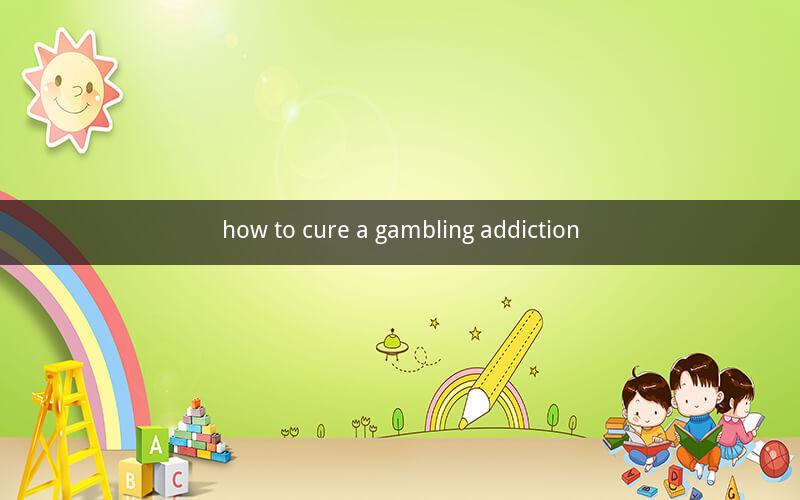
Table of Contents
1. Understanding Gambling Addiction
2. The Importance of Early Intervention
3. Identifying the Signs of a Gambling Problem
4. Professional Help: Therapies and Counseling
5. Self-Management Techniques
6. Support Systems and Community Resources
7. The Role of Family and Friends
8. Legal and Financial Consequences
9. The Road to Recovery
10. Long-Term Strategies for Maintaining Sobriety
1. Understanding Gambling Addiction
Gambling addiction, also known as compulsive gambling, is a serious condition characterized by an inability to control the urge to gamble despite negative consequences. It is a complex disorder that can affect individuals of all ages, backgrounds, and socioeconomic statuses. Understanding the nature of this addiction is crucial for effective treatment and recovery.
2. The Importance of Early Intervention
Early intervention is key in treating gambling addiction. Recognizing the signs and seeking help as soon as possible can significantly improve the chances of recovery. Delaying treatment can lead to more severe consequences, both personally and financially.
3. Identifying the Signs of a Gambling Problem
Identifying the signs of a gambling problem is the first step towards addressing it. Common signs include:
- Preoccupation with gambling
- Needing to gamble more money to achieve the same thrill
- Feeling restless or irritable when not gambling
- Continual attempts to stop or control gambling without success
- Lying to family, friends, or therapists about gambling activities
- Using gambling as a way to escape problems or negative emotions
4. Professional Help: Therapies and Counseling
Professional help is essential for treating gambling addiction. Therapies such as cognitive-behavioral therapy (CBT) and dialectical behavior therapy (DBT) have been shown to be effective. These therapies help individuals identify and change negative thought patterns and behaviors associated with gambling.
5. Self-Management Techniques
Self-management techniques can also be beneficial in overcoming a gambling addiction. These include:
- Setting strict limits on gambling time and money
- Avoiding triggers, such as gambling websites or casinos
- Keeping a gambling diary to track progress and identify patterns
- Engaging in healthy activities to replace the urge to gamble
6. Support Systems and Community Resources
Support systems and community resources can provide crucial support for individuals struggling with gambling addiction. Support groups, such as Gamblers Anonymous, offer a safe space for individuals to share their experiences and receive encouragement from others who have faced similar challenges.
7. The Role of Family and Friends
Family and friends play a vital role in the recovery process. They can provide emotional support, help individuals stay accountable, and offer practical assistance. Encouraging the individual to seek professional help and participating in family therapy can also be beneficial.
8. Legal and Financial Consequences
Gambling addiction can lead to significant legal and financial consequences. These may include:
- Loss of employment
- Legal issues related to gambling debts
- Bankruptcy
- Divorce or separation
- Criminal charges
9. The Road to Recovery
The road to recovery from gambling addiction is often challenging and may require multiple attempts. Individuals must be patient and persistent, and it is essential to recognize that recovery is a lifelong process.
10. Long-Term Strategies for Maintaining Sobriety
Long-term strategies for maintaining sobriety from gambling addiction include:
- Continuing therapy and support group participation
- Building a strong support network
- Developing healthy coping mechanisms
- Monitoring financial and legal situations
- Setting and achieving personal goals
Questions and Answers
1. Q: What is the most effective treatment for gambling addiction?
A: The most effective treatment for gambling addiction often involves a combination of therapies, such as cognitive-behavioral therapy (CBT) and dialectical behavior therapy (DBT), along with support from family, friends, and support groups.
2. Q: Can someone recover from a gambling addiction on their own?
A: While it is possible for some individuals to recover on their own, seeking professional help and joining support groups can significantly improve the chances of successful recovery.
3. Q: How long does it take to recover from a gambling addiction?
A: The length of time it takes to recover from a gambling addiction varies from person to person. Some individuals may experience immediate relief, while others may require ongoing treatment and support for years.
4. Q: Can a person with a gambling addiction ever gamble again?
A: While it is possible for individuals to gamble again after recovery, it is crucial to approach gambling with caution and to establish strict limits to prevent relapse.
5. Q: What are the signs of a gambling relapse?
A: Signs of a gambling relapse may include a return to previous gambling behaviors, increased stress or anxiety, and a lack of interest in recovery activities.
6. Q: Can family therapy help in treating gambling addiction?
A: Yes, family therapy can be highly beneficial in treating gambling addiction. It helps address family dynamics and provides support for both the individual with the addiction and their loved ones.
7. Q: Are there any medications that can help treat gambling addiction?
A: While there are no medications specifically designed to treat gambling addiction, certain medications may be prescribed to help manage symptoms of co-occurring disorders, such as depression or anxiety.
8. Q: How can someone tell if they have a gambling problem?
A: Individuals can assess their gambling habits using self-help tools and questionnaires available online. If they recognize signs such as preoccupation, financial strain, or lying about gambling, it may be an indication of a problem.
9. Q: Can a person with a gambling addiction work in the gambling industry?
A: It is generally not recommended for individuals with a gambling addiction to work in the gambling industry, as it may trigger relapse and exacerbate their addiction.
10. Q: What is the most important thing to remember during the recovery process?
A: The most important thing to remember during the recovery process is that it is a journey, and setbacks are a normal part of the process. Persistence, patience, and self-compassion are key to achieving long-term sobriety.